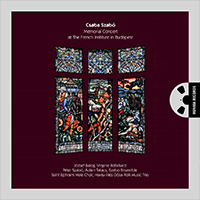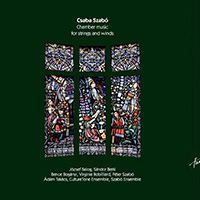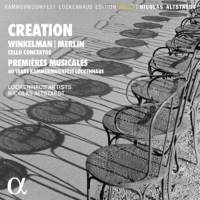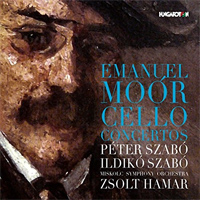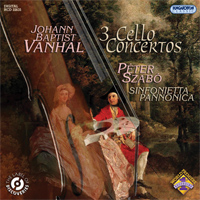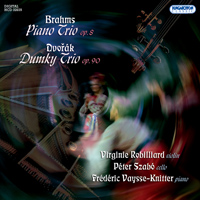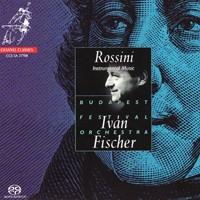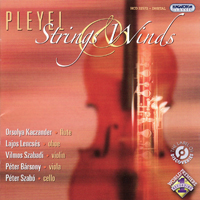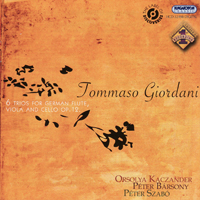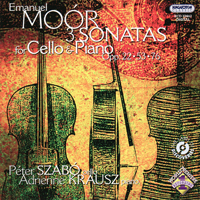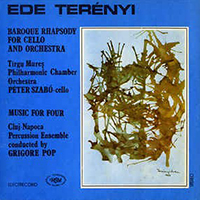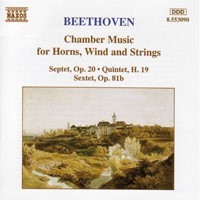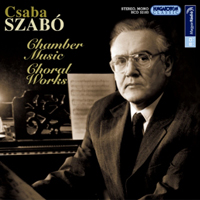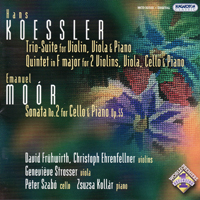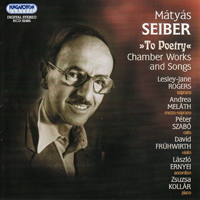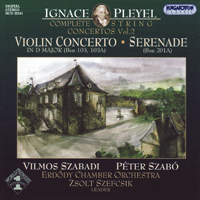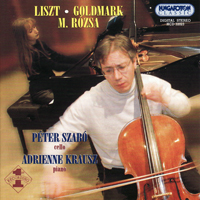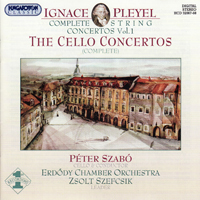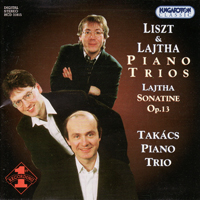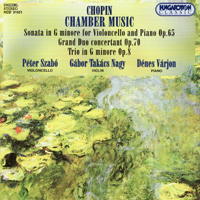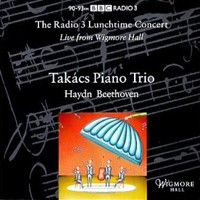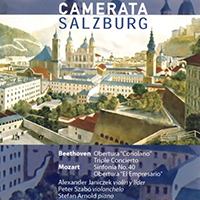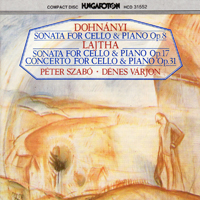Concert critic
The violinist David Frühwirth, the cellist Péter Szabó and the pianist Zsuzsa Kollár devoted the first part of the January 5th concert in the Márványterem to the curious match of two composers who were Hungarian by birth but who were separated from their home.
In the beginning of the concert we could listen to two compositions by Seiber Mátyás, born 100 years ago. Seiber studied composition under Zoltán Kodály at the Academy of Music in Budapest from 1921 to 1925. He was one of the 13 young composers, who, following a sharp criticism from the Neues Pester Journal, were defended by their master in the famous June 1925 Budapest Journal article in which he also worded his own pedagogical and compositional credo. From 1935 Seiber lived in or near London, where he taught, composed for film studios and led a choir. He was killed in a car accident in 1960 in South-Africa. Here in Hungary his works never became part of the regular concert programme; probably because he left too early and his music could not take root in the repertoire. Now we could listen to two cello-piano pieces – which is not incidental: he pursued cello studies under Adolf Schiffer at the Academy of Music as well as composition.
From the two compositions it is the Fantasy which proves that the Hungarian feature does not disappear from the music, it only transforms. It was rather interesting to observe how the system of harmonies equalizing twelve notes develops in the spirit of the new ambitions of the 20th Century while the system of gestures still holds the romantic posture and the strong pathos of the Kodály-influenced Hungarian compositional tradition. The other composition, the Sarabande and Gigue in Old Style is a more simple matter in this regard. This is a pure
historical style-play, a kind of archaizing without transposition, a cleansing spring which was, following the footsteps of Schönberg, used by many at the time to bathe in, especially by those who were the most strongly affected by the twelve-note idea. Péter Szabó and Zsuzsa Kollár performed both pieces with an overwhelming instrumental knowledge, polished elaboration and, first and foremost, by lively characterization.
The next composition is the 1976 Trio by Iván Eröd, born in 1936, and living in Austria since 1956. It provides yet another easy example for the critics to illustrate the idea of subsistent Hungarian musical characteristics. Eröd’s piece is not twelve-note any more; it is rather a representative of the reclining retro movements which appeared from the end of the ‘70s –it melts tonal spots into the music and it sounds nice in the classical meaning of the word. But even in this capacity he remains loyal to the Hungarian idiom which defines melodic structures and stresses; and as far as the finale is concerned, with its asymmetric rhythms raising Southern Slav memories, it most explicitly indicates Bartók’s influence. The Frühwirth-Szabó-Kollár trio offered again a high quality interpretation, bringing out the values of the music in a colourful, variegated, animated manner.
What kind of a final could possibly follow three rarities if not another rarity. The Zemlinsky student E. W. Korngold, born in 1897, was an important member of the Viennese composer generation growing up in the neighborhood of the Schönberg school. In the past few years he has been rediscovered as a typical representative of the Secession. The piano trio hear now, is a true curio, an eleven-year-old genius’ op.1 work, which the young composer student wrote in 1908. David Früwirth, Péter Szabó and Zsuzsa Kollár put emphasis on the most essential characteristic of the piece, its premature nature and they brought forth the flowing Late-Romantic tunefulness and overflowing emotional atmosphere of the movements,
the harmony structures, which can be referred to as a mélange of the styles of Brahms, Richard Strauss and Reger, and of course the chamber symphonism abounding in passionate dynamical peaks.
Our last example is a turn-back to the Hungarian pieces of the concert. We give you the Fantasy by Mátyás Seiber in the performance of Péter Szabó and Zsuzsa Kollár.
Kristóf Csengery
Translation by Susan Kapás
Bartók Radio
January 2005


